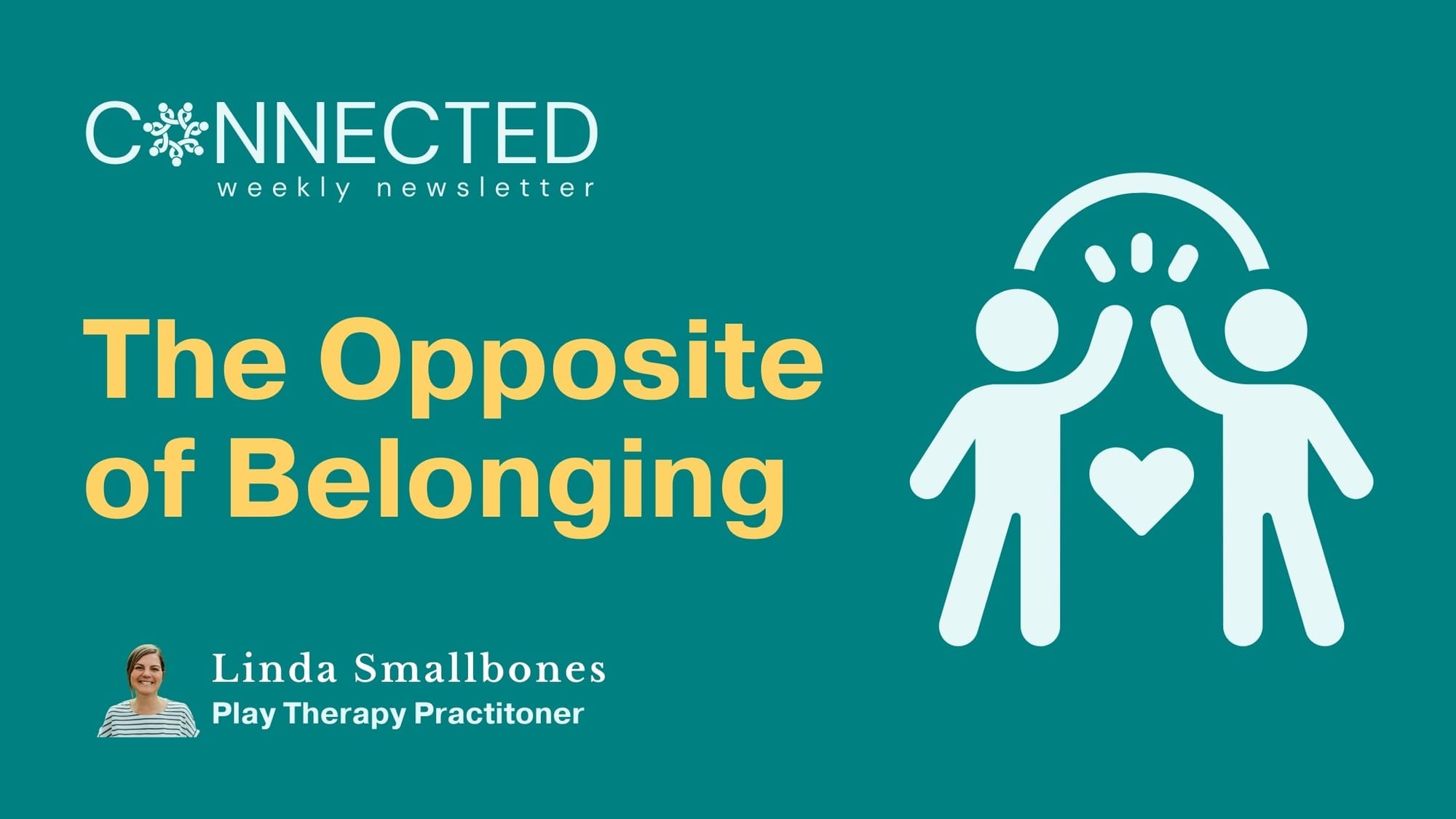The Opposite of Belonging
Discover how the opposite of belonging is fitting in, and why that is sometimes necessary. Let me help you explore ways to support your teen child as they look for ways to be seen and heard by their peers.

The opposite of belonging is fitting in.
~Brene Brown~
Humans are so wired to connect and belong in the “pack”, that when we feel disconnection or a sense that we don’t quite belong, we do what we can to fit in. To essentially pretend that we belong, even at the expense of our true self. The stage of adolescence is a prime example of this behaviour.
The upside of fitting in
What may sound negative is actually highly adaptive and necessary at times. Adolescents become highly sensitive to being “in” or “out” of social groups and they find adaptive ways to fit in. Trying to fly under the radar, and stand out as belonging in the group at the same time. This could show up in ordinary choices they make every day – changing their clothing style or hairstyle, using language you’ve never heard them use, or adopting an attitude that doesn’t seem true to our perception of who they are.

We do need to consider that adolescents are not only driven by what their peers say and do, they are also trying to individuate, trying on identities in that quest to find who they are…whilst still trying to find belonging, failing which, fitting in. That’s a lot to negotiate for them!
Understanding that fitting in isn’t totally negative and serves a purpose is important. This increases our insight, understanding and compassion for what our children, particularly our teens, may be going through. Adolescence officially starts at age 11, so this process goes on for quite some time.
Supporting our teen through the "fitting in" years
I want to propose that in some ways we support the positive, adaptive ways our adolescents are attempting to fit in. When they make what we think is a choice that is “not them”, that we simply notice and let it go – unless it is harmful to themselves and others. Be curious about how this helps them to fit in. Wonder in what ways they may be feeling threatened by being “out” of the group.
Be more available to offer gentle encouragement and accept them for who they are in the tricky process they’re going through. Let your teen know that you see them and let go of any perception you may have of who you think they should be.

If we create our homes to be places our children know they are always accepted, loved and that they belong, we have done a marvellous job. And one that will be a good foundation for them to be themselves more and more.
It's about the journey
Ultimately, the goal as we all mature emotionally (even well into adulthood!), is to choose less and less “fitting in” behaviour because we know who we are and what our purpose is in this world.
“We have to belong to ourselves as much as we need to belong to others. Any belonging that asks us to betray ourselves is not true belonging.”
~Brene Brown, Atlas of the Heart~
Adolescence is the journey of moving away from what they have known about themselves and life, to experimenting with different ways of being (hence, more fitting in), to finding themselves and feeling comfortable belonging to themselves. If you feel like you’ve “lost” your teen, this is one of the reasons why.
“True belonging is the spiritual practice of believing in and belonging to yourself so deeply that you can share your most authentic self with the world and find sacredness in both being a part of something and standing alone in the wilderness. True belonging doesn’t require you to change who you are; it requires you to be who you are.”
~Brene Brown, Atlas of the Heart ~
When we feel that we belong to ourselves, we know who we are and what we’re about, we know our strengths and our weaknesses, we know what we can contribute in the world and where our boundaries lie. The need to fit in starts to dissipate.
If I get to be me, I belong. If I have to be like you, I fit in.
~Brene Brown~

Doing the work for ourselves
Usually, that need to fit in arises when we are in new contexts, or when we feel threatened or vulnerable. We don’t always feel safe enough to share our authentic self, and that is OK. We adapt to protect and survive. If we always felt true belonging, it would be a perfect world because we’d always feel safe and accepted and acceptable to others.
It takes some work to come to a place of belonging within the self. Emotional, heart work, learning about who you are and who you are not, recognising your patterns of relationship with yourself and others. One of the reasons I love to journal as a regular practice in my life is that it helps me to do this work regularly. Consider joining in one of the upcoming journalling workshops in February and March. You would be so welcome!
Below is information about the in-person workshop in February!

And here is info about Parent Conversations, starting on 3 February
